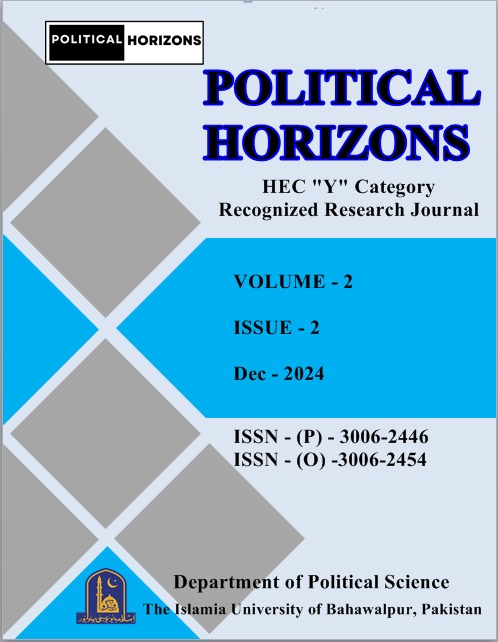Covid-19: Crossroads for Globalization
Abstract
The process of global integration has hard hit in recent years with the recent rise of hyper nationalism. There has been an elaborative debate going on whether globalization remains intact in years to come. Even though, the determinant fallout in either case is yet to be classified, still the events like out-break of Covid-19 has posed serious structural questions on the issues like globalization, internationalism, and nationalism. For both the academicians and the practitioners of global politics; understanding the genesis of Covid-19 is as necessary as is its underlying political impact to foresee and to prompt the suggestable political adjustments that states have to make for sustainable socio-economic well-being. Therefore, this study expounds into the details of the nature of political mayhem that has been resultant. As it remains quite evident, that initial response of globally integrated countries was more marked on blame game and score settling, instead of coordination and cooperation to effectively mitigate the immediate impacts. So far, this remains a central concern of this research that how and why certain countries have shaped and implemented effective policy to contain, and curb spread of Covid-19, and why the other countries have failed to do so. In this regard the comparative study of countries like, Italy, UK, US, Brazil, and India are conducted with that of China, Singapore, Canada, Germany, and South Korea. The centrist tendency of the countries in effective managerial tier pose as serious questions to the future of globalization as is the democratic legislative countries who failed to make the mark due to their political indecisiveness. So far, this study explores the underlying cause to the leadership level, as well as state and societal level, in an order to make prognosis of the said pandemic. The theoretical construct delves into the points of neo-liberalism, in an order to evaluate the prospects and limitations of states to intervene and to regulate the political landscape of post Covid-19’s world. In the end, this study encapsulates the lessons that could be learnt and adjustments that are deemed to be made for making an integrated stride on behalf of states in years to come forth.
Keywords: Globalization, Neoliberalism, Internationalism, Nationalism, Democratic Legislative, Centrist Political Manifestation

Downloads
Published
How to Cite
Issue
Section
License
Copyright (c) 2024 Muhammad Jahanzeb Akmal, Mariam Javed Asghar, Ansar Abbas

This work is licensed under a Creative Commons Attribution-NonCommercial 4.0 International License.




